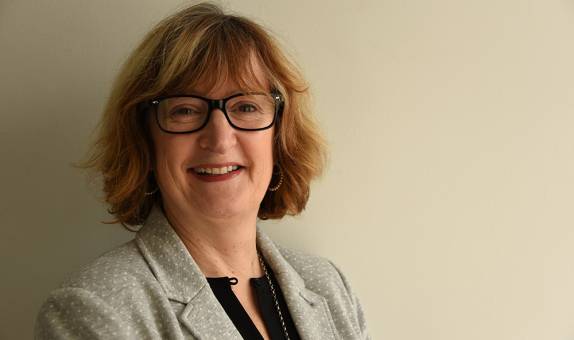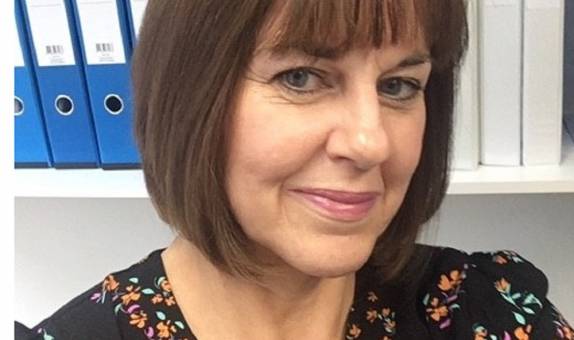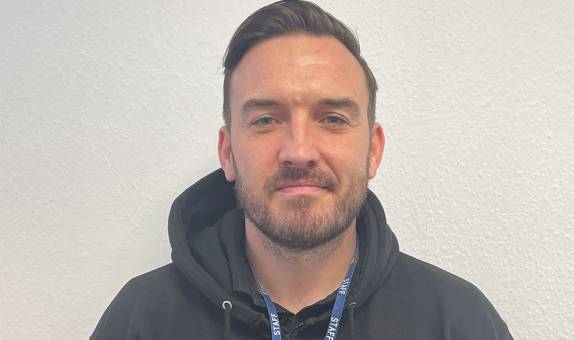Postgraduate Certificate in Education (PGCE) top-up
Why choose this course?
The PGCE Top Up has been carefully designed to meet your needs as a teacher and classroom practitioner. You will already have QTS and will be looking to develop further your professional career.
This course will develop your skills and knowledge, support your progress towards leadership and provide a foundation for further study. You will reflect on your role as a teacher and critically examine how education and teaching policy and practice affect your classroom experience and practice. The course consists of two masters-level modules which combine private study, face-to-face and 'live' online learning.
You will develop your critical evaluation skills and explore current issues in teaching and learning.
The following pathways are available:
- PGCE (top-up) Early Years
- PGCE (top-up) Primary
- PGCE (top-up) Secondary
| Mode | Duration | Attendance | Start date |
|---|---|---|---|
| Part time | 6 months | Six Saturday sessions and online learning | September 2024 |
| Main Location | Kingston Hill |
Reasons to choose Kingston University
- This course is for practising teachers who have achieved QTS through a range of routes, including the School Direct Programme.
- It is designed to fit alongside your teaching commitments, allowing you to combine work and study. Taught sessions are delivered on Saturdays through a blended learning approach which includes six teaching days on campus and four online sessions.
- You will use technology-enhanced learning opportunities for collaboration and networking with other students on the course.
What you will study
The top-up course consists of two masters-level modules where you will learn about education policy and practice, and how these impact on your classroom or setting experience. You will develop your critical evaluation skills and explore current issues in teaching and learning.
The two modules are each worth 30 masters-level credits and combine interactive, face-to-face learning, live online learning, and private study. The interactive learning will include taught sessions with discussions and activities and is planned to fit around your work commitments.
Core modules
Core modules
The Reflective Teacher
30 credits
This module introduces you to theories of reflective practice and the value and purpose of reflection for teachers. This will enable you to develop in-depth understanding of how you reflect in order to identify issues and develop solutions in your professional settings.
The main features of the module are critical explorations of factors that affect how children develop physically, socially and as learners. You will critically analyse issues relevant to your current practice, considering your own position as an effective teacher.
Through completion of a reflective journal during the module, you will develop critical, reflective and reflexive skills to inform peer and colleague discussion within a learning community. You will be encouraged and supported to challenge and develop your professional practice.
Perspectives on policy, practice and professionalism for teachers
30 credits
This module enables you to locate yourself as a professional within wider discourses about teaching as a profession. It engages you in evaluating your own identity as a professional and in reflecting on the values that you and the wider profession hold.
The module supports you engage critically in discussions and debates that consider factors affecting classroom practice. These debates focus on specific areas to exemplify wider issues in education and include inclusive teaching and learning issues and legislative frameworks that influence codes of practice.
You will read key papers related to the sessions and respond in online discussions to develop shared understandings. You will focus on an area of interest in your professional practice when writing the assignment, drawing on knowledge and understanding gained through the formative tasks.
Entry requirements
Teaching and assessment
You will engage with teachers and staff through attendance at online and face-to-face teaching and learning days (six Saturdays from October to March) and through the University's virtual learning environment (VLE) which includes online tutorials that can be scheduled to fit around your work.
There are technology-enhanced learning opportunities for collaboration, networking and peer feedback, available via the VLE discussion forum.
Who teaches this course?
The tutors for your course have significant experience of teaching in schools. They continue to be actively involved in a range of education related activities, such as further study, research and direct work with schools and in educational settings.
Fees for this course
Here you can find details about fees for this course, as well as any funding opportunities available to you. Please note that fees relate to the academic year in question and will increase in future years.
Facilities at Kingston Hill
There is a wide range of facilities at our Kingston Hill campus, where this course is based.
Kingston Hill is a leafy, hillside campus situated about three miles away from Kingston town centre. It is a quiet, secure place to study with easy access to London, meaning it provides the best of all worlds for our students.
Find out more about the Kingston Hill campus in the virtual tour.
Library
One of the highlights of the Kingston Hill campus is the modern library, called the Nightingale Centre after Florence Nightingale, who was a regular visitor to Kingston Hill.
The library provides a spacious and attractive place for students to meet and study and features a cafe, more PCs and zoned study areas. Long opening hours give you plenty of access to specialist education books, journals and online resources.
Find out more about the Nightingale Centre in the virtual tour.
Computer and online facilities
There are many computers (PCs and Macs) available for you to use across the Kingston Hill campus when you need a place to study. Access to the wireless network across the campus means you can also work from your laptop or mobile device.
Using IT to support your studies is crucial. Kingston has an innovative virtual learning environment called Canvas. This allows you to access course materials and contact fellow students and staff while away from the campus.
After you graduate
This course has been designed to be a practical, work-based course for teaching and learning in schools which may lead to further career progression in leadership and management.
The award of a PGCE is recognised by school systems in the UK, and by many international education systems, as a necessary qualification for teaching in schools, subject to their own country's regulations.
Additionally the course offers you a pathway to a masters qualification, with the two modules carrying a total of 60 masters credits.
Research areas
Many of our staff in the Department of Education are research active. This ensures they are in touch with the latest thinking and bring best practice to your studies.
Education research at Kingston includes:
- Subject pedagogy
- Curriculum design
- Planning
- Assessment
- Safeguarding
- SEND and inclusive practice
- Early Years
- Supporting more able learners
- Educational inequalities
- Policy
- History of education
- Higher education
Course changes and regulations
The information on this page reflects the currently intended course structure and module details. To improve your student experience and the quality of your degree, we may review and change the material information of this course. Course changes explained.
Programme Specifications for the course are published ahead of each academic year.
Regulations governing this course can be found on our website.





